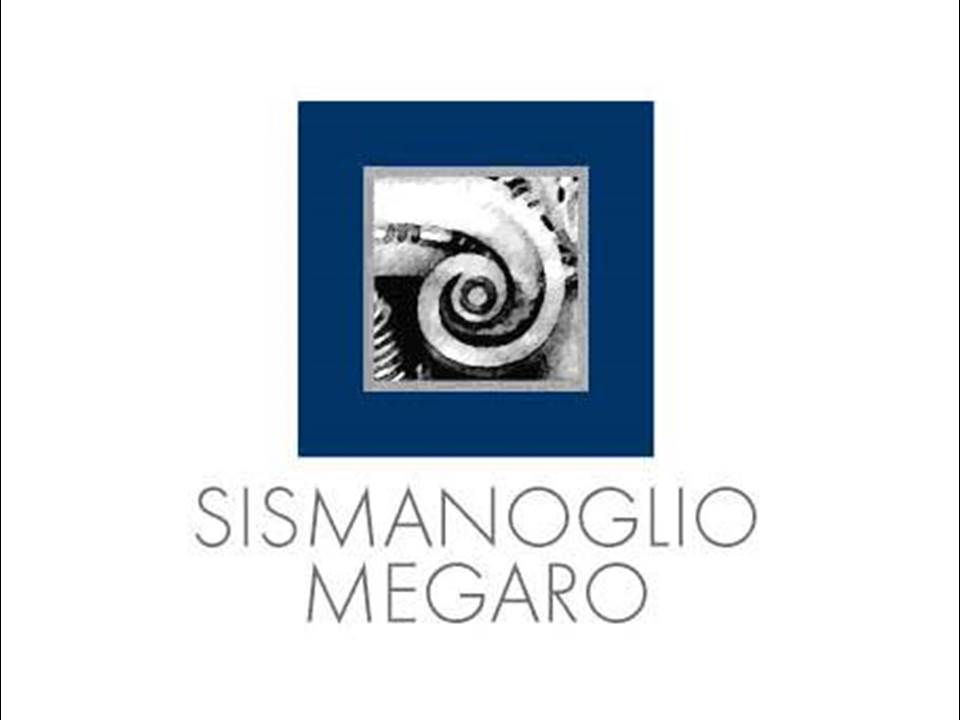

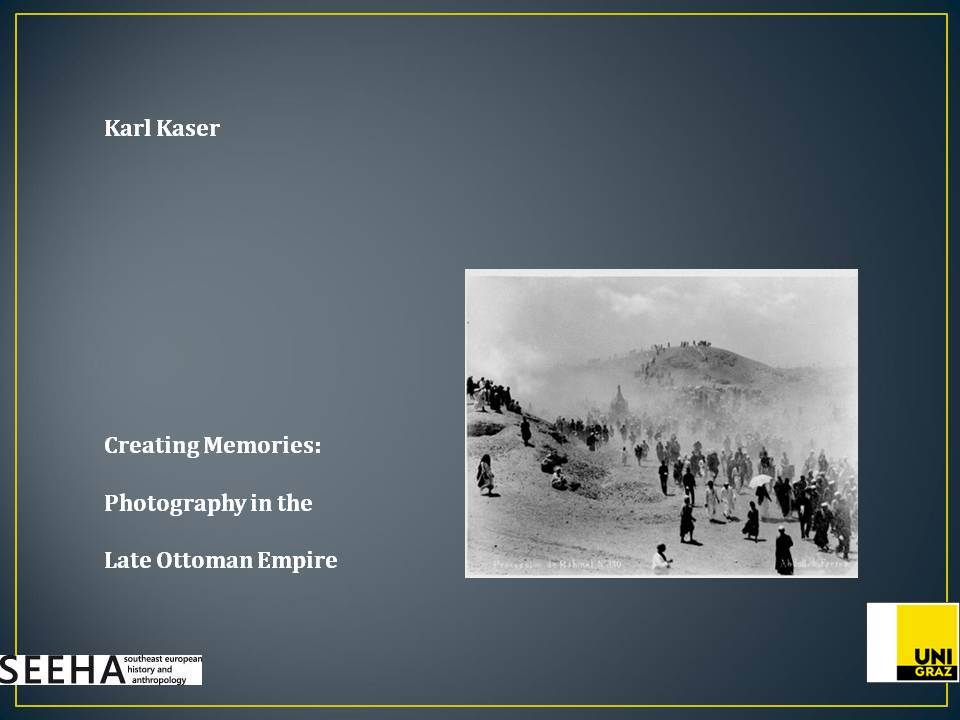

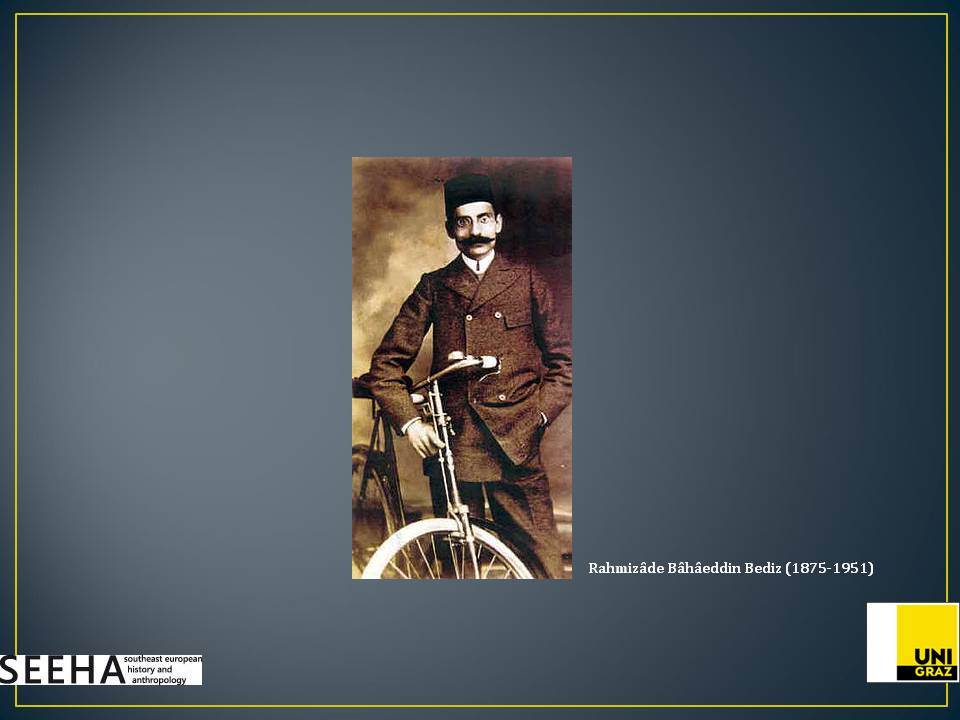
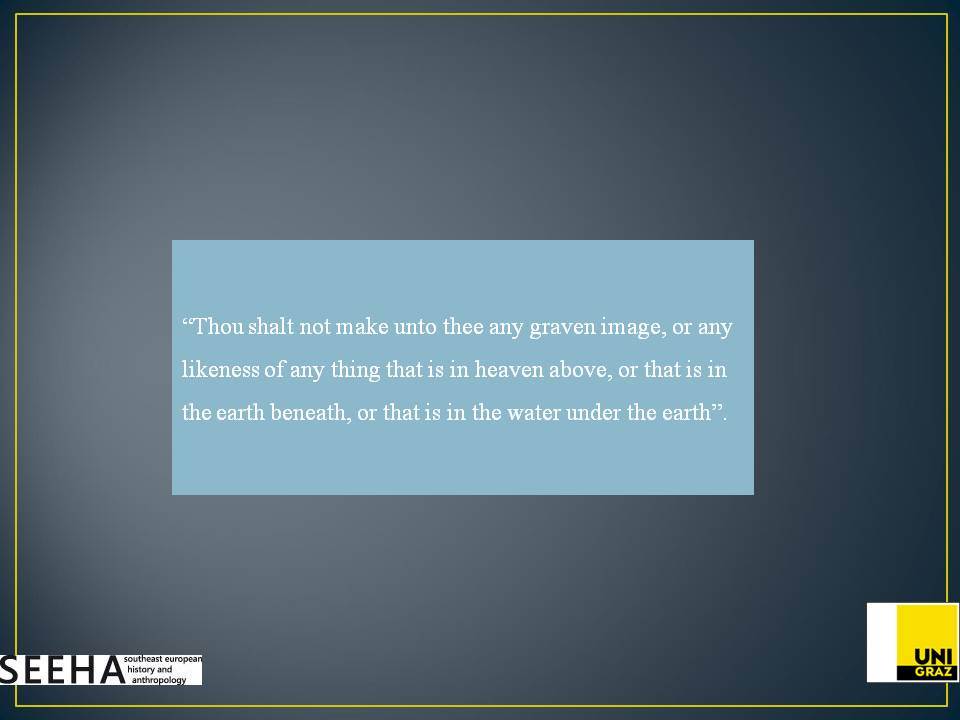
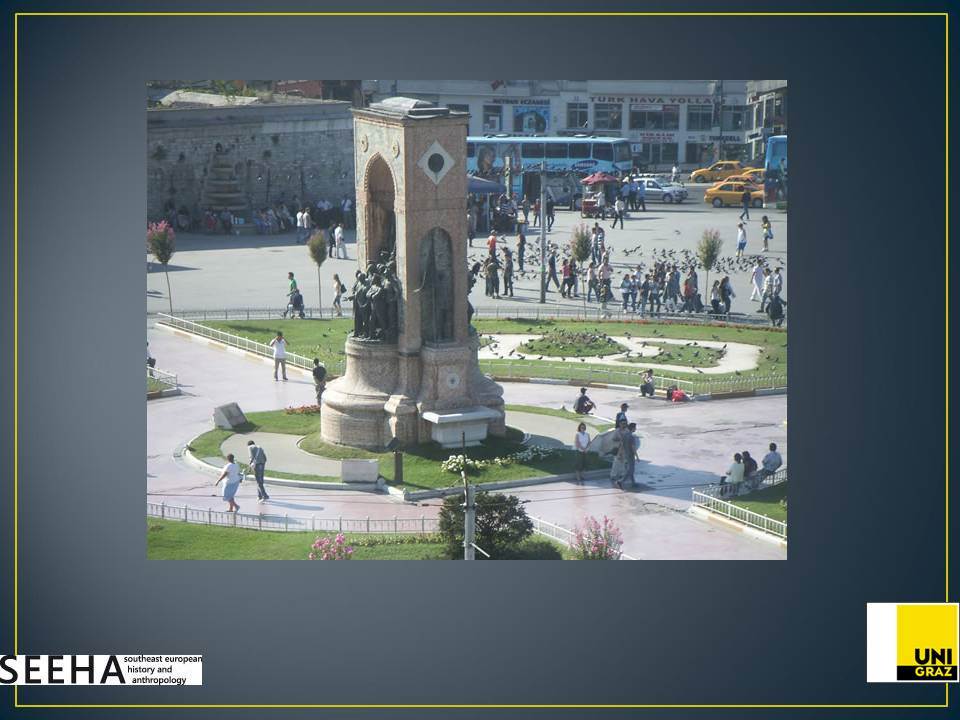
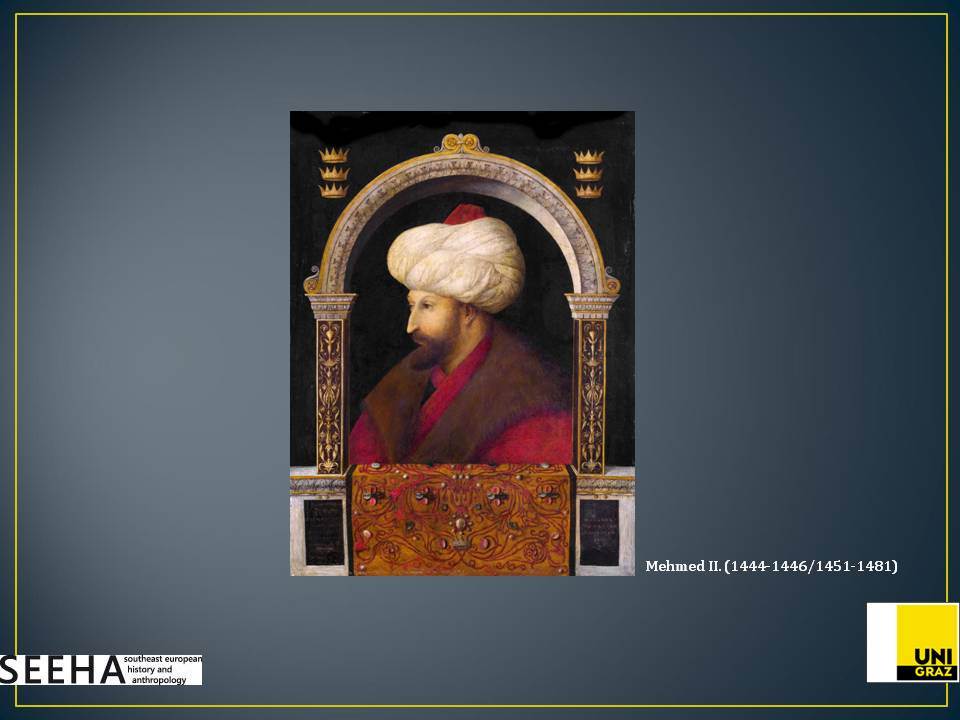
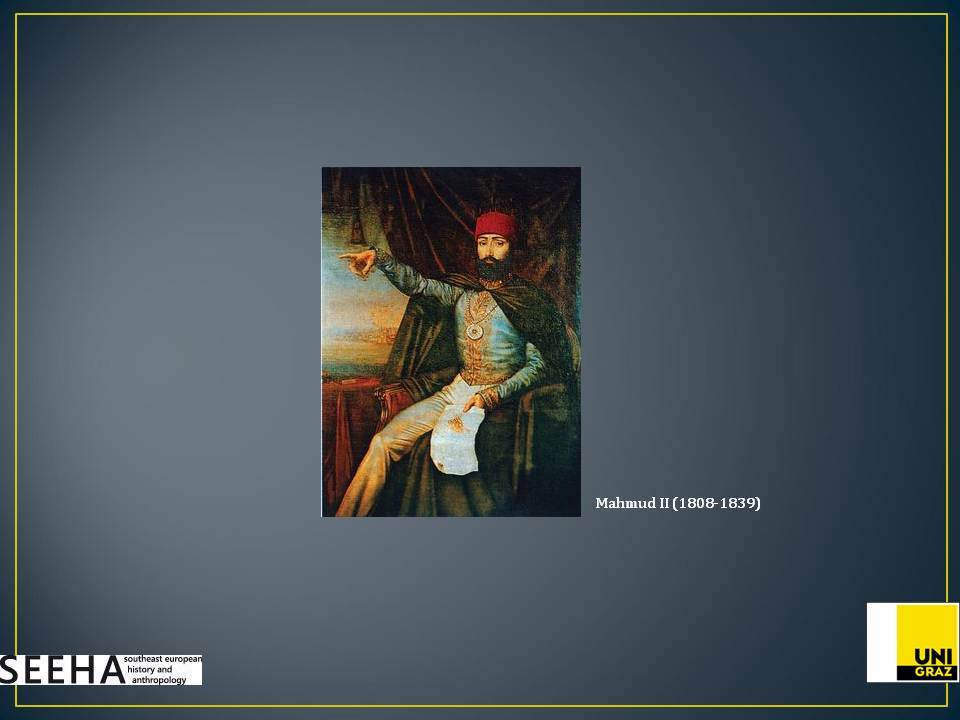
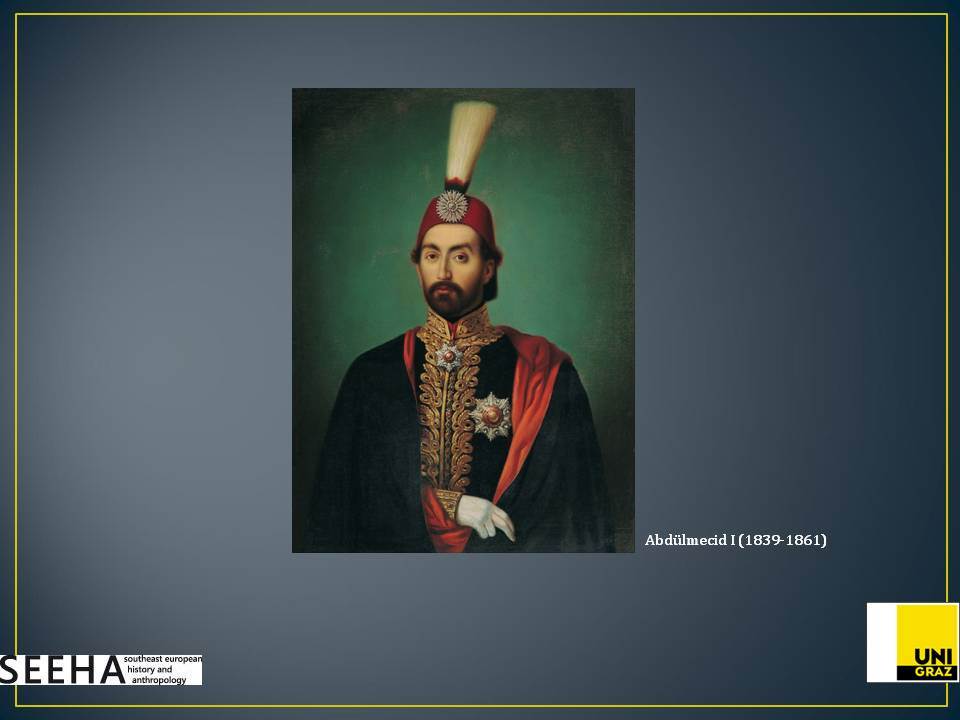
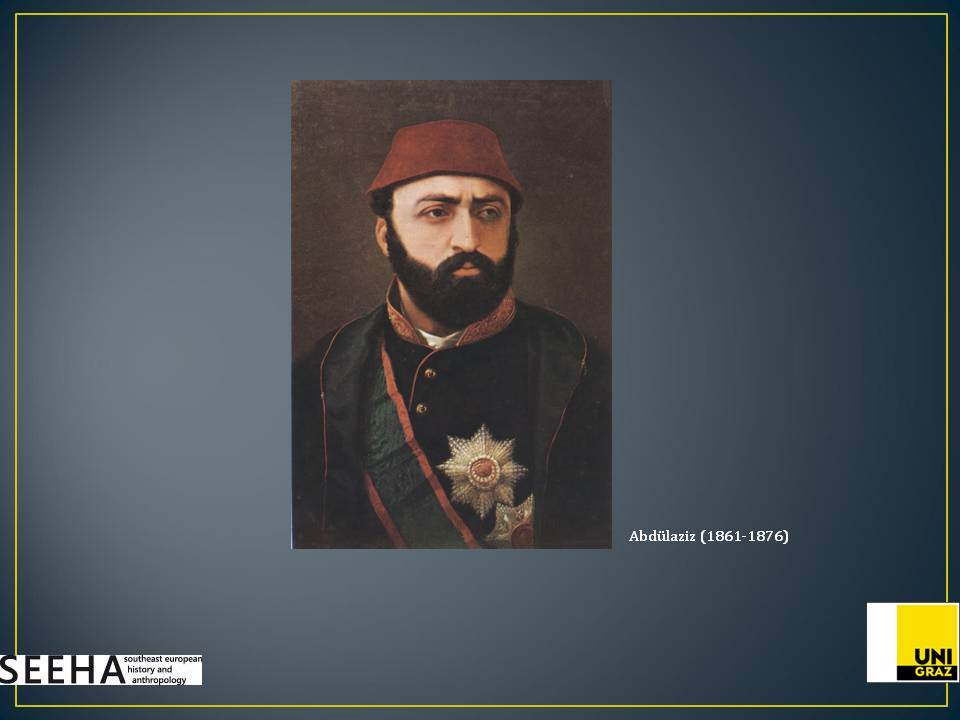
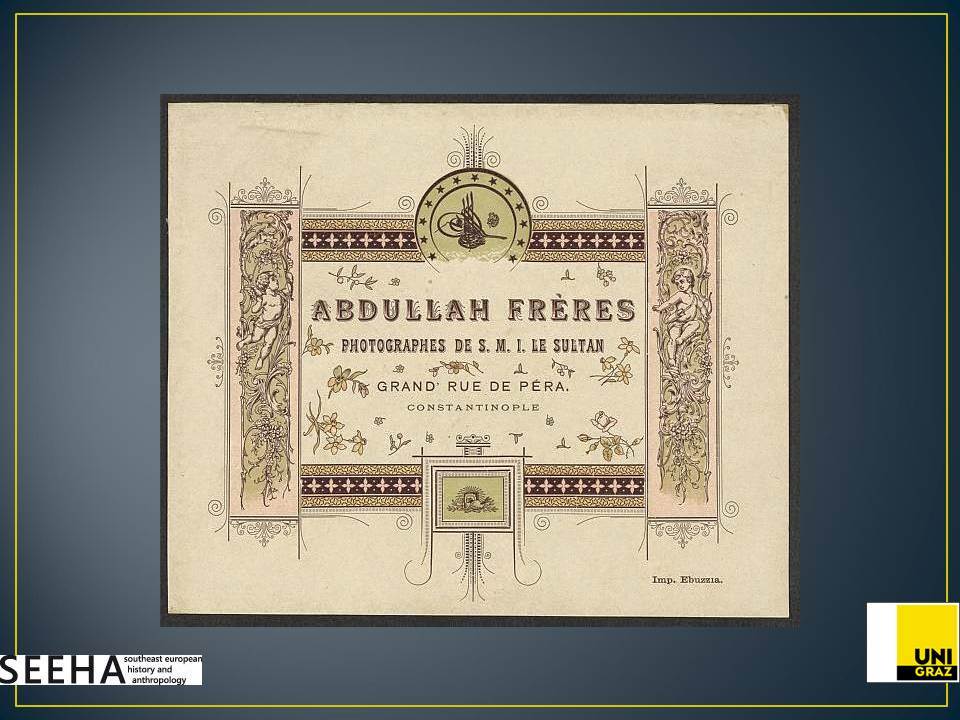
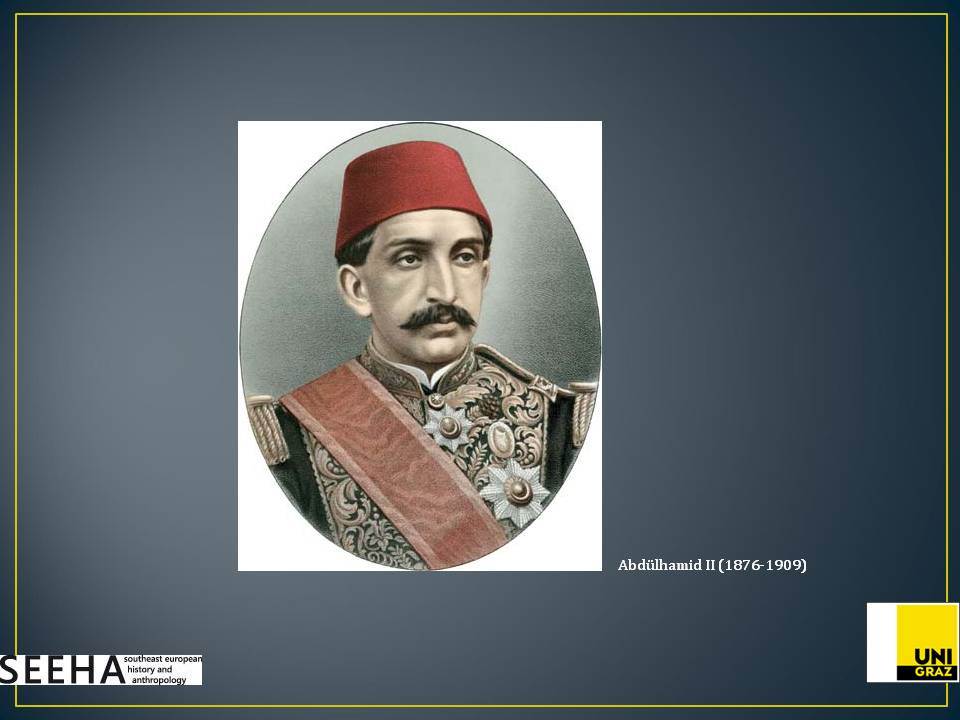
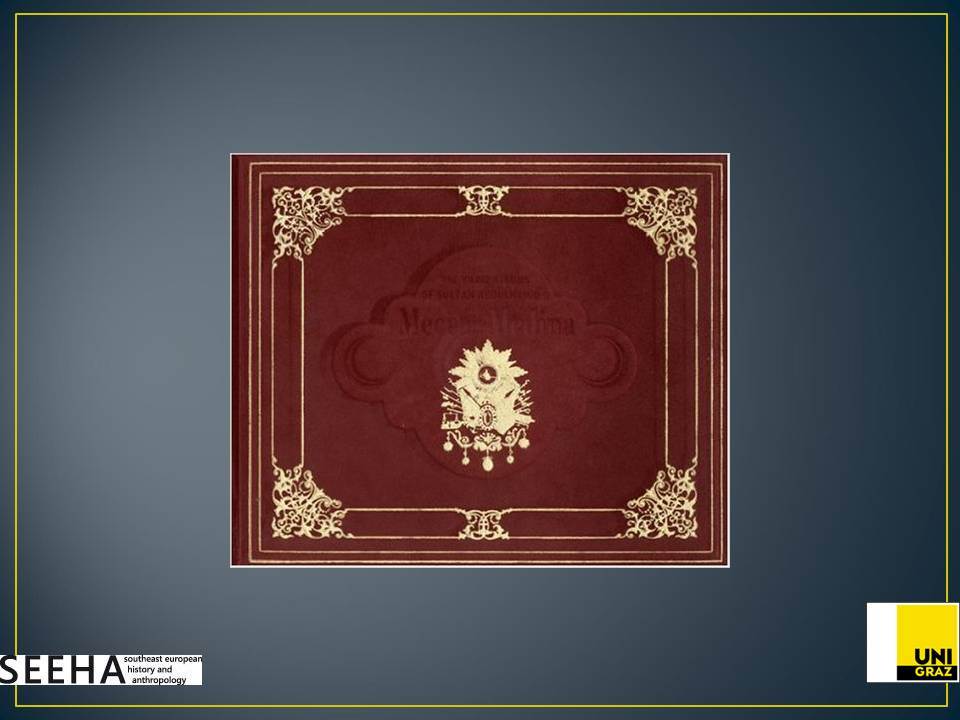
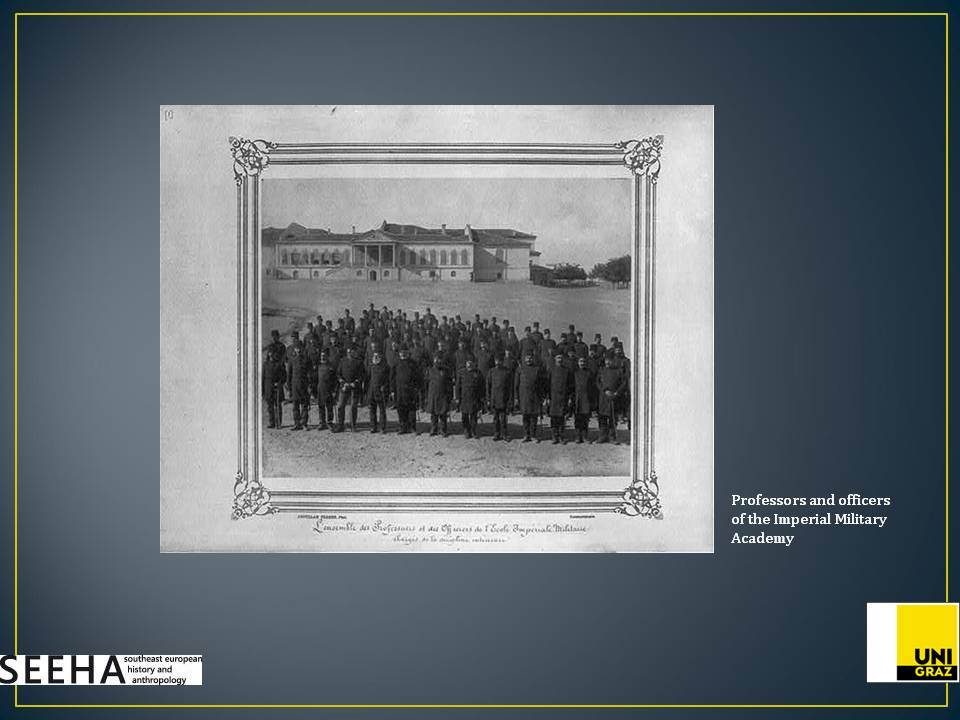
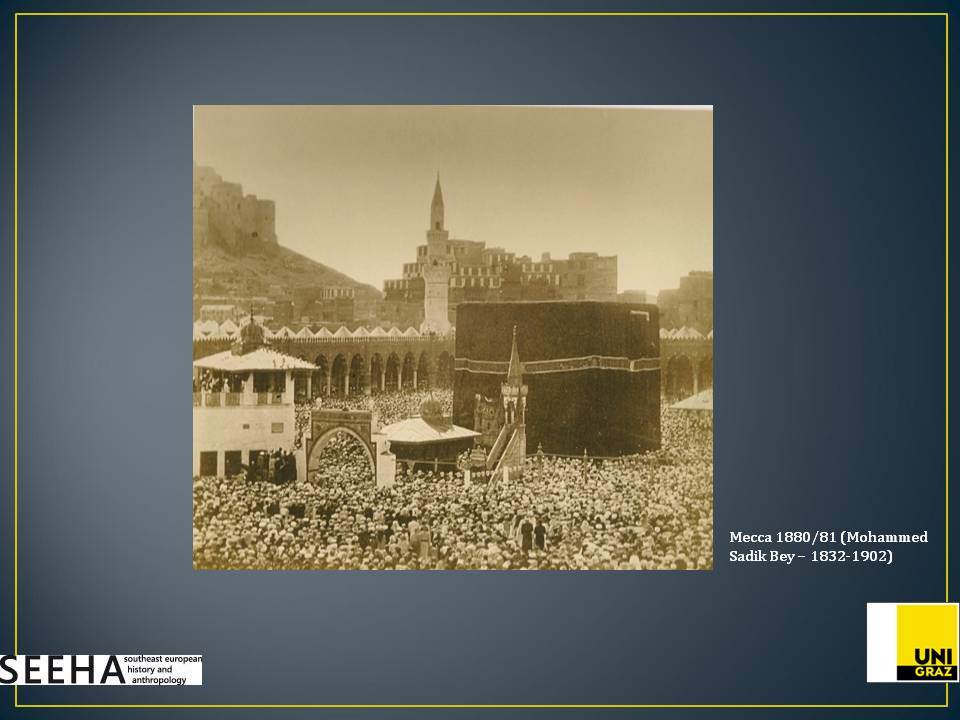
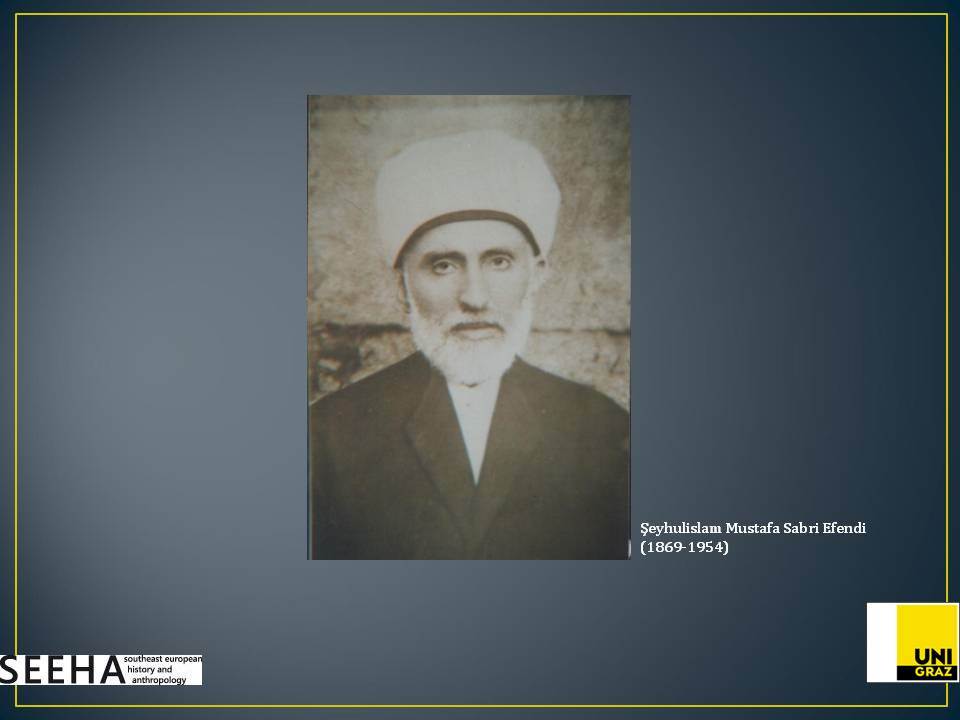
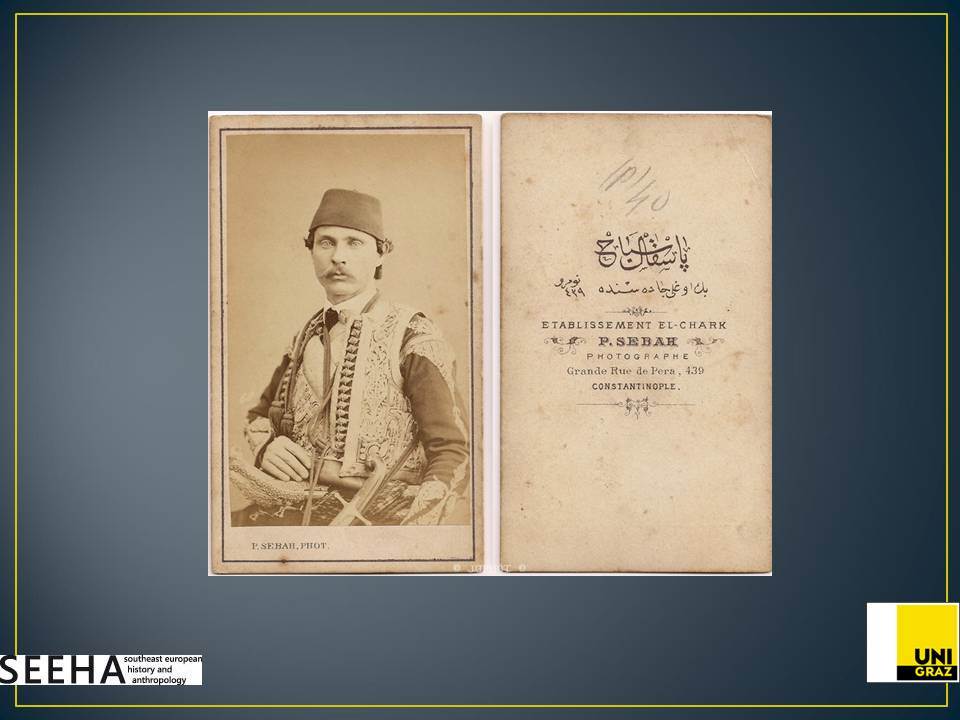
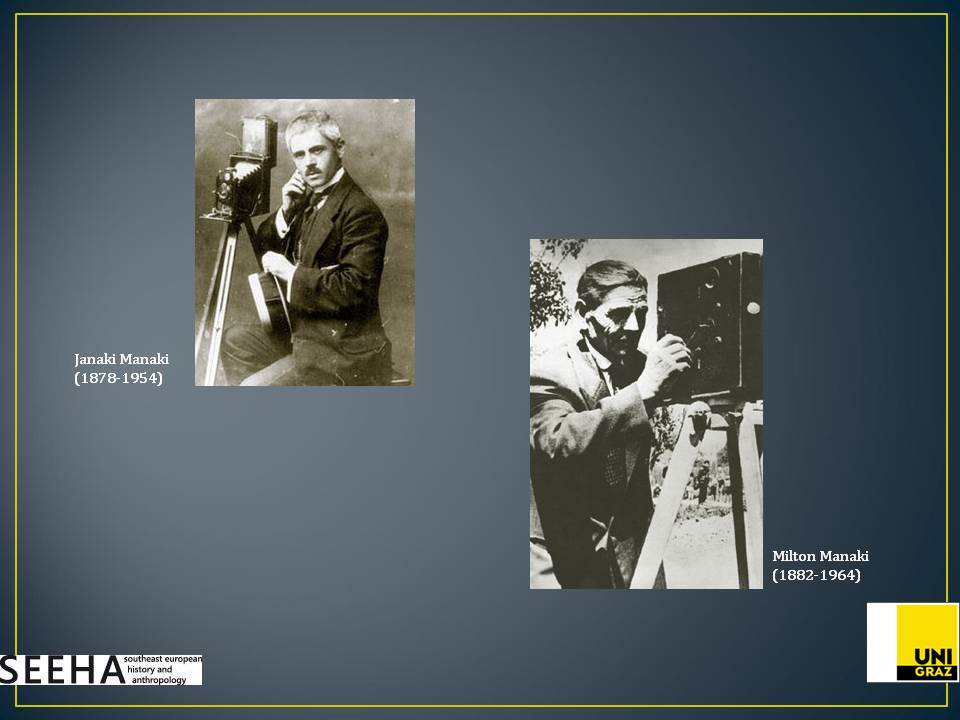
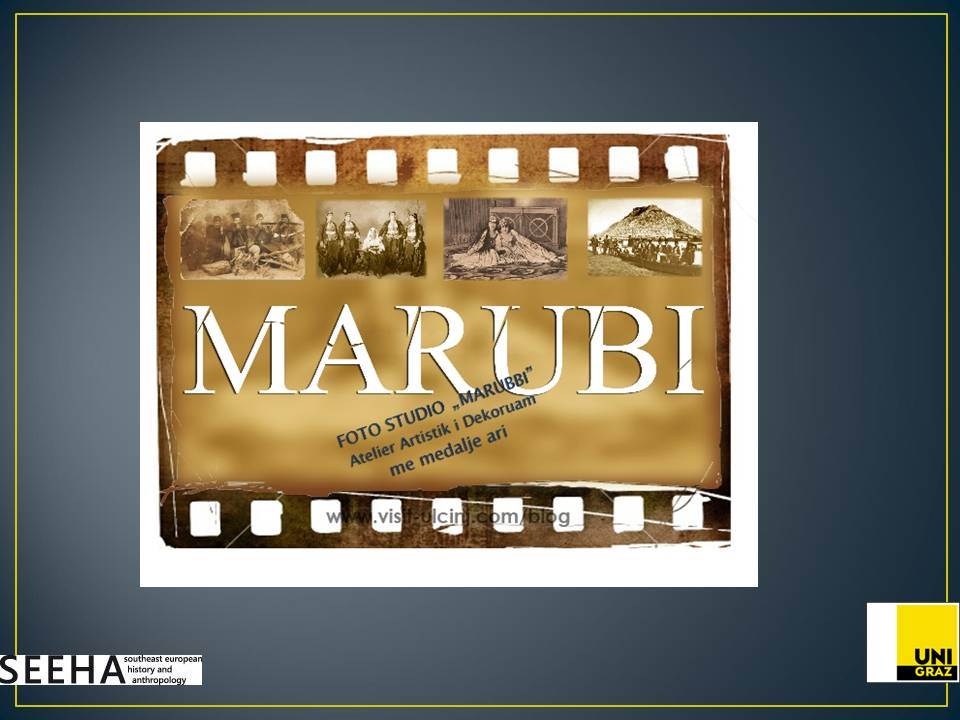
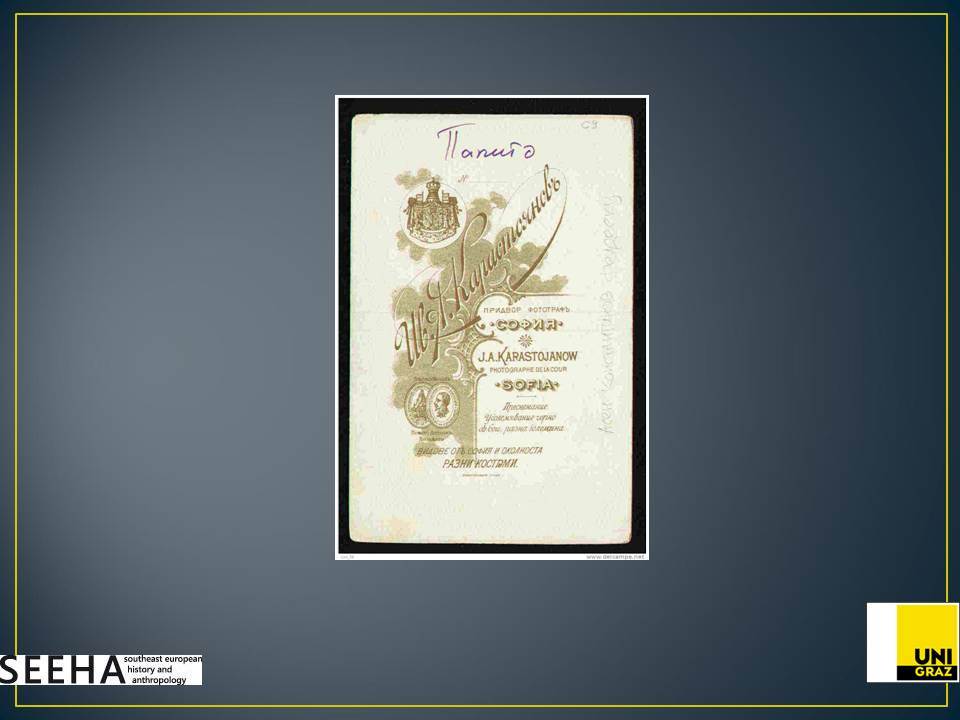
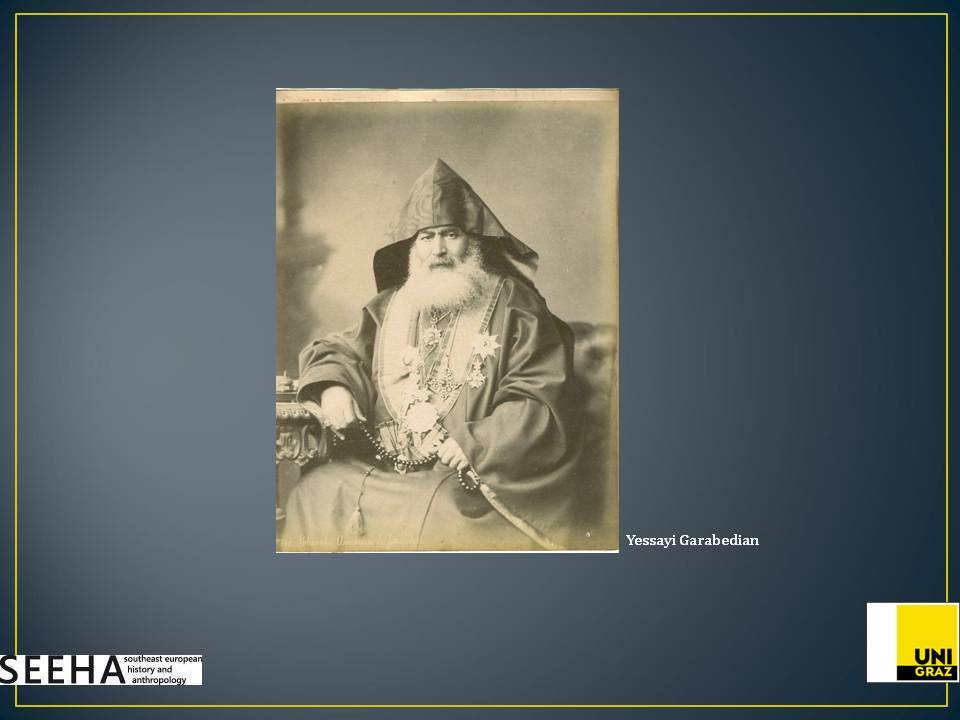
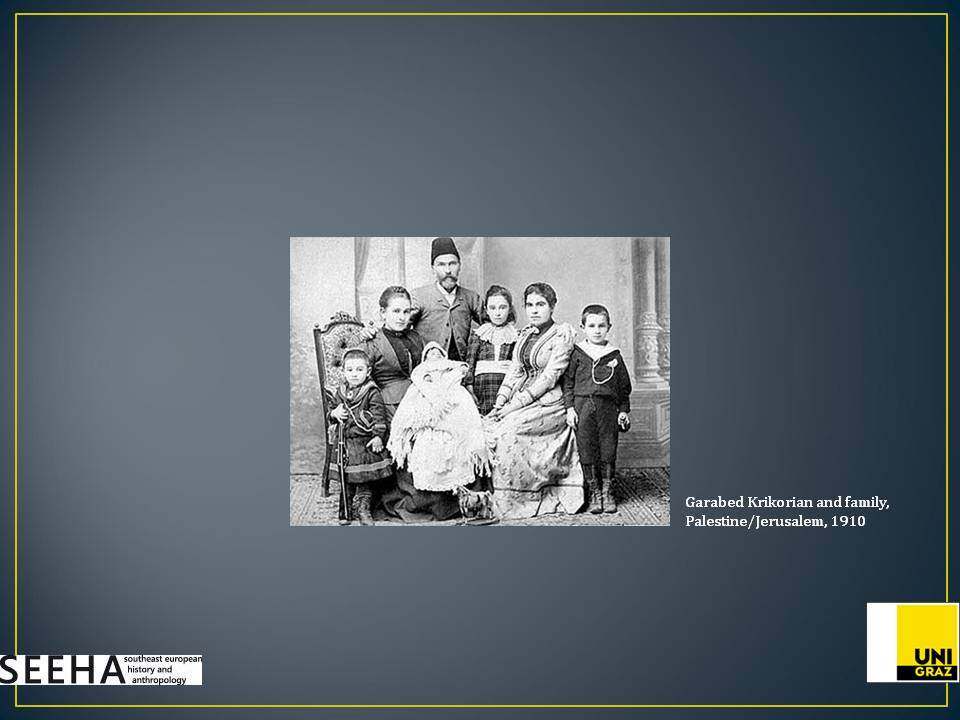
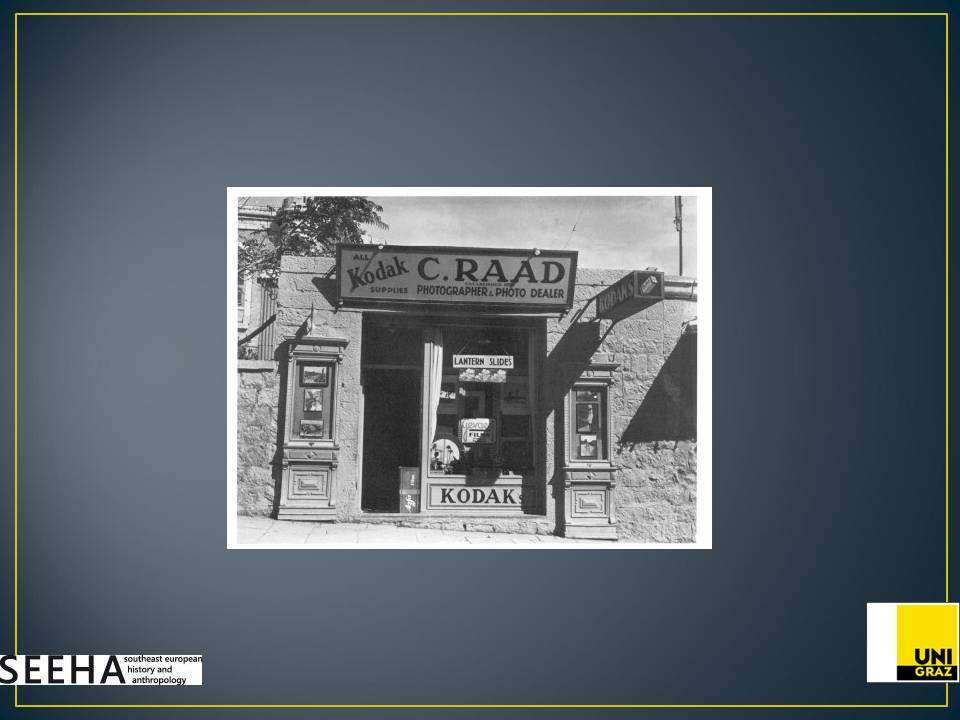
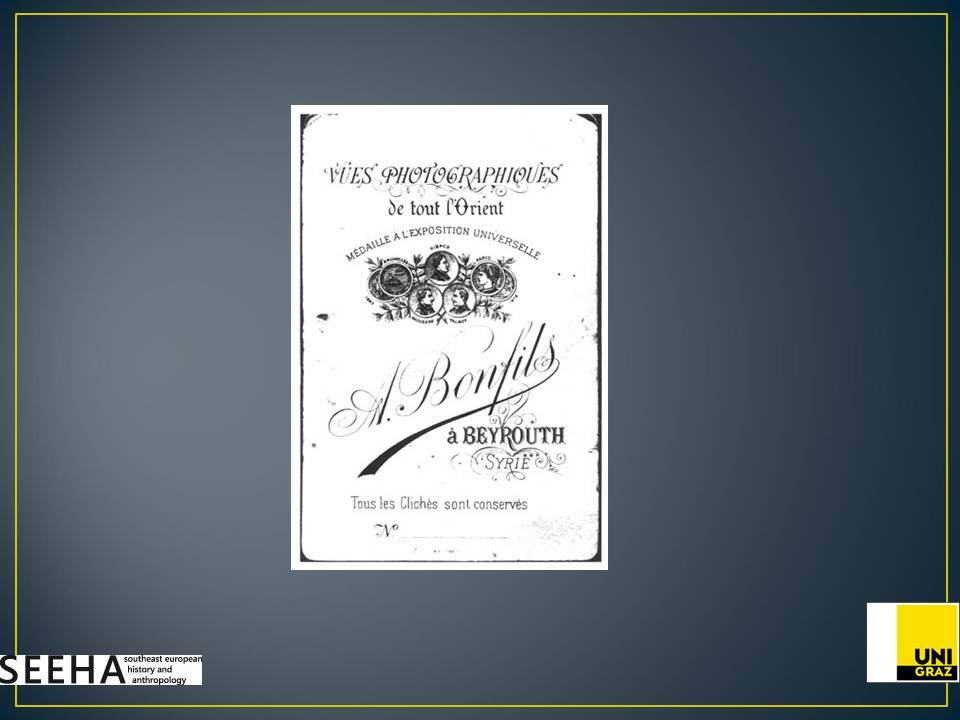
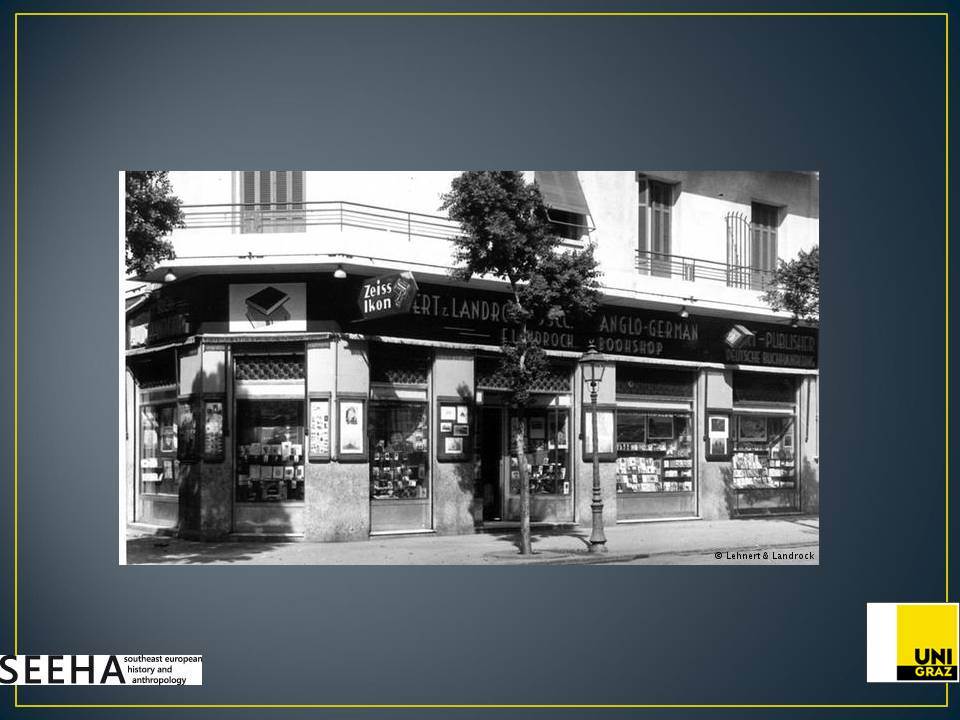
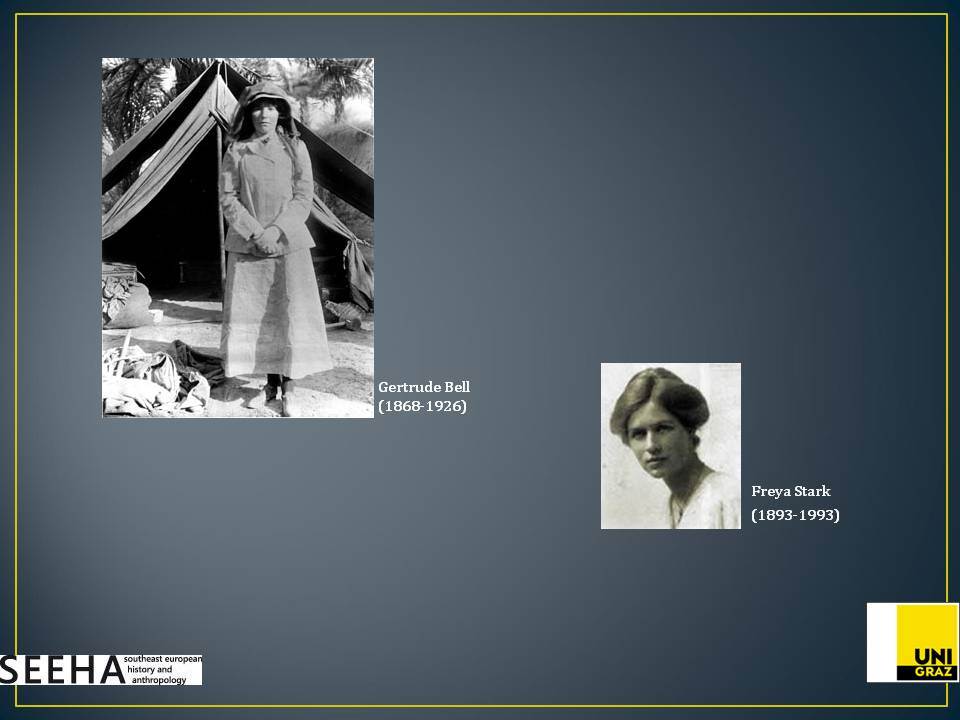
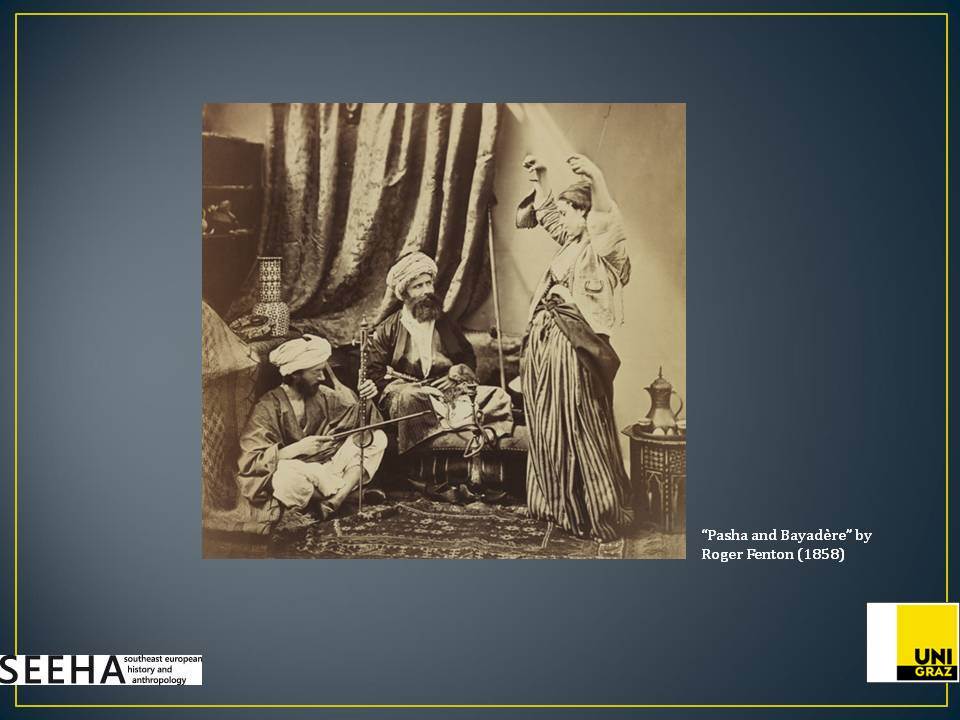
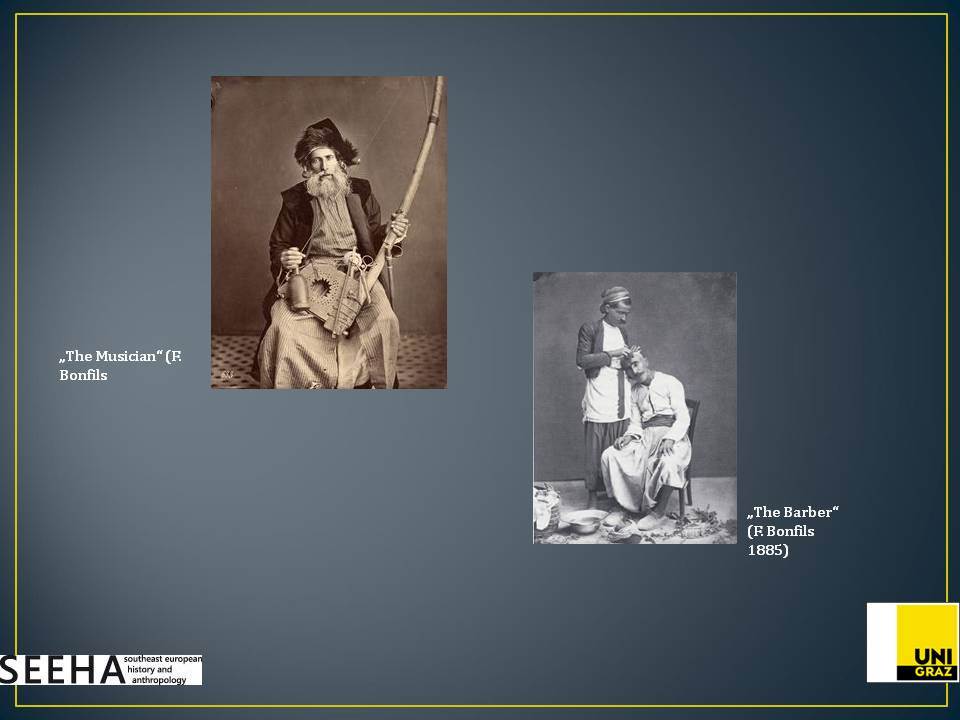
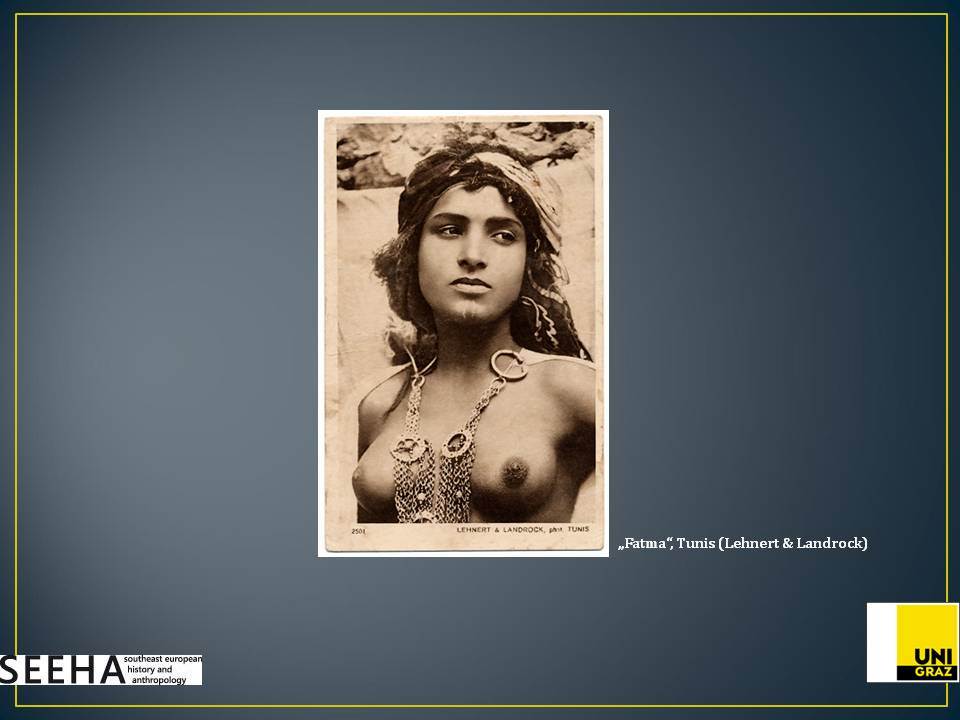
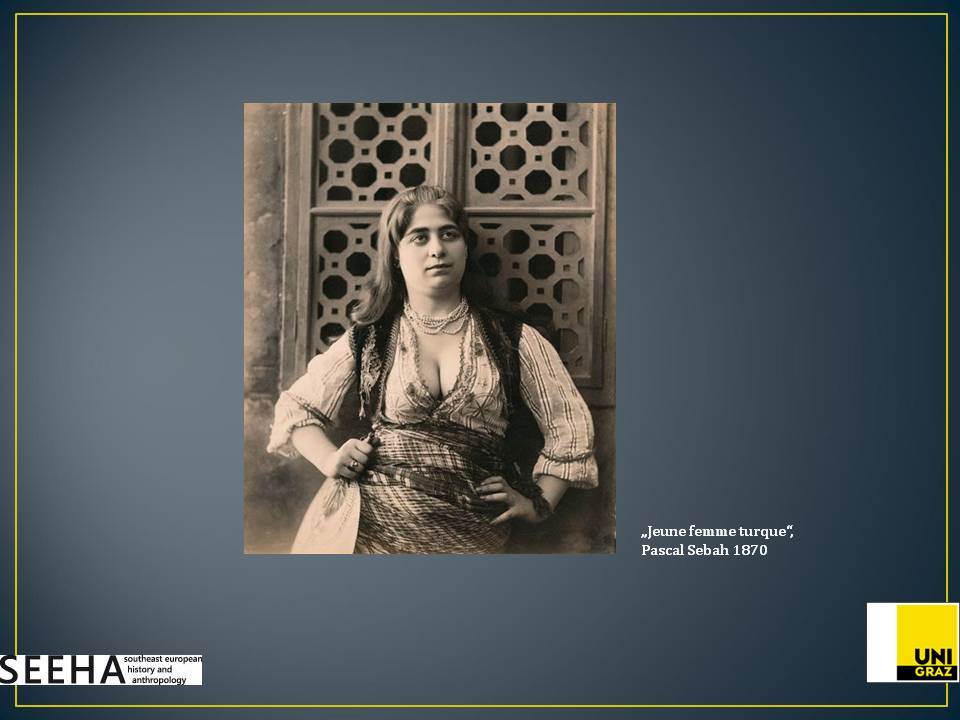
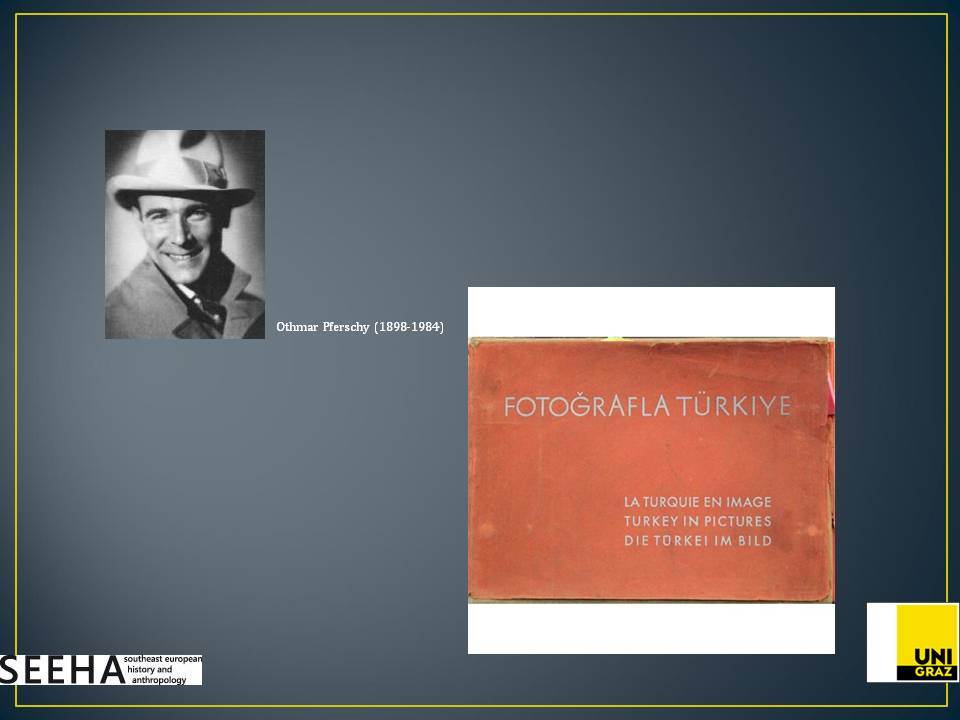
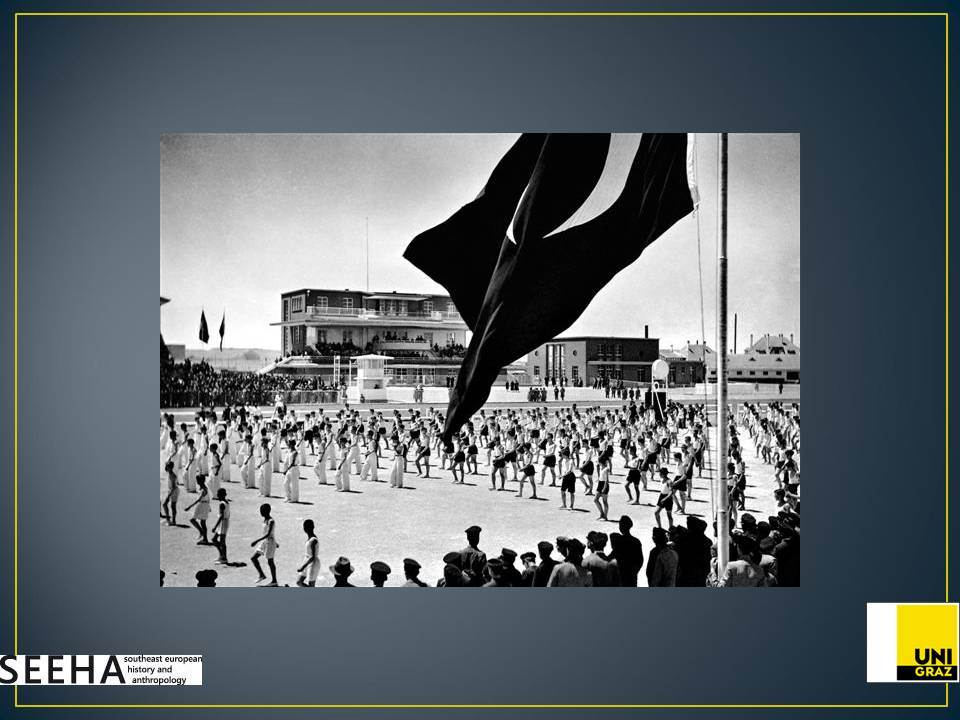
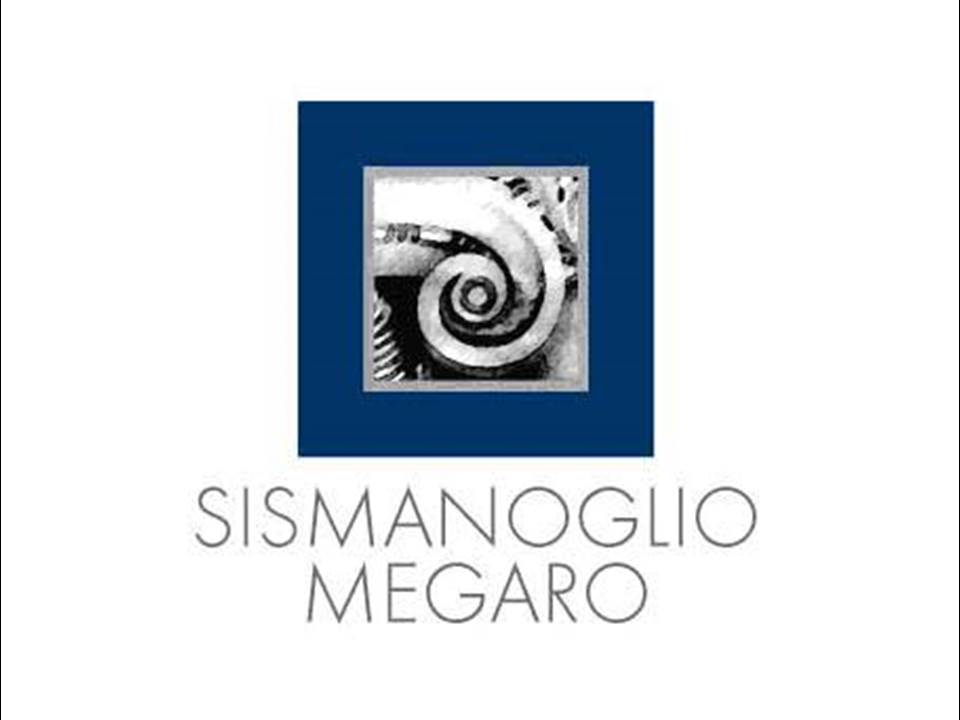
Eldem Edhem
Kaser Karl
Wittmann Richard
Balta Εvangelia
Γλώσσα
Türkçe
Ημερομηνία
09/12/2015
Διάρκεια
98:03
Εκδήλωση
Sismanoglio Megaro konuşmalar
Χώρος
Sismanoglio Megaro, Istanbul
Διοργάνωση
Γενικό Προξενείο της Ελλάδας στην Κωνσταντινούπολη
Scroll for English
Yunanistan Ulusal Araştırma Enstitüsü Osmanlı Araştırmaları Programı ve Orient-Institut Istanbul işbirliğiyle Sismanoglio Megaro binasında “Doğu Akdeniz’de Osmanlı Geçmişini Hatırlamak” başlıklı bir konuşmalar dizisi düzenliyor. Ekim 2015 – Mayıs 2016 eğitim öğretim döneminde Sismanoglio Megaro’da Evangelia Balta (Program of Ottoman Studies, National Hellenic Research Foundation, Athens) ile Richard Wittmann’ın (Orient-Institut, Istanbul) birlikte düzenleyeceği bu konferans dizisi, Doğu Akdeniz bölgesindeki günümüz sakinlerinin ortak geçmişlerinin çeşitli yönlerine ışık tutmayı amaçlıyor. Bu konferans dizisi Orient-Institut Istanbul ile Program of Ottoman Studies at the National Hellenic Research Foundation’ın araştırma alanlarıyla örtüşmektedir. Osmanlı İmparatorluğu’nun yıkılışının sonuçlarıyla etkilerinin halen hissedildiği günümüzde, bu konferanslar hâkim tarihyazımının standart kurallarını ve sınırlarını zorlayan çok sayıda kaynağa odaklanmaktadır. Kişisel ve resmi yazılı kaynaklarının yanı sıra görsel ve sanatsal ifade biçimlerini de araştırma sürecine dahil eden bu dizi, bu geniş –ve yüzyıllar boyunca bir bütün olarak kalmış– coğrafi alanda yirminci yüzyılın ilk otuz yılındaki derin siyasi değişikliklere eşlik eden kopuşlara ve sürekliliklere bir ışık tutma denemesi olacaktır. Devamını oku: http://goo.gl/JDzkt4
Doğu Akdeniz’de Osmanlı Geçmişini Hatırlamak: “Fotoğraflarda Οsmanli’nin günlük yasamını resmetmek”
Edhem Eldem (Istanbul): Osmanlı Fotoğraçılığında Yerel Boyutun Peşinde
ÖZET
Osmanlı İmparatorluğu’nda fotoğraf konusunda çok sayıdaki yayın ve araştırmaya rağmen, bu fotoğrafçılığın yerel boyutuyla ve etkinlik (agency) meselesiyle ilgili soru ve sorunlar hâlâ çok az araştırılmıştır. Bu durum kısmen bu malzemenin Edward Said’in bulgularına ve postkolonyal literatüre dayalı okunmasıyla izah edilebiliyorsa, sorunun diğer bir veçhesini tutarlı ve sürekli belge serilerinin ve bunlara dayalı sistemli araştırmaların yokluğu oluşturmaktadır. Özel koleksiyonlardan çok daha az çarpıtmaya meyilli olan arşiv kaynaklarını kullanarak bu coğrafyadaki fotoğrafçılığın en temel dinamikleri konusunda daha odaklı bir tartışmaya girmek mümkün olabilmektedir. Bu dinamiklerin arasında özellikle vurgulamak istediğim, resmi çekilen kişinin pozu, stüdyo malzemesi ve oluşan görüntünün sosyokültürel bağlam arasındaki karmaşık ilişkidir.
Karl Kaser (Graz): Hatıraları Oluşturma: Osmanlı İmparatorluğu’nun Son Döneminde Fotoğrafçılık
ÖZET
Müslümanların fotoğraf çekmeye ve çektirmeye yönelik isteksizlikleri yüzünden, Osmanlı İmparatorluğu’nda ve özellikle de İstanbul’da fotoğrafçılık, yabancı turistlerle gayrimüslim yabancı ve yerel fotoğrafçıların başı çektiği bir meslek oldu. Müslüman bir fotoğrafçı tarafından işletilen ilk atölye, fotoğraf makinesinin ilk olarak Fransa’da resmen satışa sunulduğu 1839’dan ancak 76 yıl sonra, 1915’te açılmıştı. Bu atölyenin sahibi, fotoğrafçılık eğitimini Girit adasında almış ve İstanbul’a taşınmadan önce de İzmir’de bir fotoğraf stüdyosu işletmiş olan Rahmizâde Bâhâeddin Bediz’di.
Bu husus bize görüntüleri yaratma işinin nesnel bir olgu olmadığını ve İbrahimi dinlerde ciddi teolojik değerlendirmelere tabi tutulduğunu hatırlatıyor. Bu değerlerdirmeler görsel hafızanın yaratılmasından ziyade Tanrı’nın, insanların ve hayvanların resimle temsilini hedef alıyordu ve almaya da devam etmektedir. Fotoğrafçılığın caiz olup olmadığına dair teolojik tartışmalar İslam dünyasında ve hatta son dönem Osmanlı İmparatorluğu’nda bile oldukça karmaşıktı. Bu bildiride bu karmaşıklığı anlamış olma iddiasında değilim. Daha ziyade, bildirinin ilk kısmında bu karmaşıklığa ışık tutmak istiyorum. İkinci kısımda ise Müslümanların kendilerini görsel olarak temsil etmeye yönelik isteksizliklerinin fotoğrafçılığın –hem içerideki hem de dışarıdaki- diğer aktörleri için Balkanlar ve Yakın Doğu’yu tasvir etme konusunda önemli bir alan açtığına işaret edeceğim.
Τhe National Hellenic Research Institute (Ottoman Studies Programme) and the Orient-Institut (Istanbul) is to hold at the Sismanoglio Megaro a series of lectures titled “Remembering the Ottoman Past in the Eastern Mediterranean”. This joint series of lectures organized by Evangelia Balta (Programme of Ottoman Studies, National Hellenic Research Foundation, Athens) and Richard Wittmann (Orient-Institut, Istanbul), to be held at the Sismanoglio Megaro during the October 2015 – May 2016 academic year, aims to shed light on various aspects of the communal past of today’s residents of the Eastern Mediterannean region. This series of lectures is consistent with the research interests of the Orient-Institut Istanbul and the Programme of Ottoman Studies at the National Hellenic Research Foundation. It focuses on a large number of sources that go beyond the standard rules of established history-writing. By taking into account personal and official textual sources, as well as visual and artistic forms of expression, an attempt will be made to throw light on the rifts and continuities that accompanied the profound political reshuffling in this wide – and for centuries, unified – geographical area during the first third of the twentieth century. Read more http://goo.gl/cL5mVN
“Picturing Ottoman life in Photography”
Over the past decades scholars in different academic disciplines enlightened us through their studies of a great number of factors that brought about and shaped the complexity of attitudes with which photography has been encountered in the Ottoman Empire. Both of our speakers in this conference, Prof. Edhem Eldem and Prof. Karl Kaser, have significantly contributed to the complexity of our understanding of photography in the Ottoman Empire and added to the discourses and debates in their respective academic disciplines. They addressed from two different angles a particular aspect of photography in the Ottoman realm: this is the importance of producing visual images for the forming of personal memories and in remembering a shared Ottoman past in the captital city Istanbul and beyond.
The images that mobilize conscience are always linked to a given historical situation. Photograph seems to chystallize sentiment more succintly and to diffuse it more poignantly. They say that when passion takes on the form of narrative, it does not wane, but photographs haunt us. In the same time we have to keep in our mind something that Susan Sontag noted: “Any photograph has multiple meanings; indeed, to see something in the form of a photograph is to encounter a potential object of fascination. The ultimate wisdom of the photographic image is to say: There is the surface. Now think—or rather feel, intuit—what is beyond it, what the reality must be like if it looks this way.”
Edhem Eldem (Istanbul): The Search for Ottoman Vernacular Photography
ABSTRACT
Despite a great number of works on Ottoman photography, questions relating to its vernacular dimension and to issues such as agency still remain to a large extent unexplored. While the appeal of Saidian and postcolonial readings of these images partly explains this slant, it is also linked to the absence of a consistent and serial documentation and corresponding systematic research. Archival series, much less prone to distortions than private collections, should allow us to engage in a more focused discussion on the fundamental dynamics of photography in this part of the world. Among these dynamics, I would particularly emphasize the complex interaction between the sitter’s pose, the studio props, and the socio-cultural context of the image thus created.
Karl Kaser (Graz): Creating Memories: Photography in the Late Ottoman Empire
ABSTRACT
Due to the Muslim reluctance to photograph and being photographed, foreign tourists, non-Muslim foreign and domestic photographers became agents of the photographical business in the Ottoman Empire and especially in Istanbul. Only 76 years after the official presentation of the first commercially realizable photo-camera in France in 1839, namely in 1915, the first atelier of a Muslim photographer in Istanbul was opened. The owner was Rahmizâde Bâhâeddin Bediz, who had received his training as photographer on the island of Crete and who operated a photo studio in Izmir before moving to Istanbul. This fact reminds us that the creation of images is not unbiased and is related to serious theological considerations in the three Abrahamitic confessions. These considerations were and are not objected to the creation of visual memory per se but to the pictorial representation of God, the human being and animals. The theological dispute on permission or prohibition of photography in the Islamic world and even in the late Ottoman Empire was very complex. In my paper, I do not dare pretending to understand this complexity. What I want to do is to shed some light on it in its first section. The second one will point to the fact that the reluctance of the Muslim population to represent itself visually opened up significant space for other agents of the photographical business – internal as well as external ones – to represent the Balkans and the Near East.
Edhem Eldem Boğaziçi Üniversitesi Tarih Bölümü’nde öğretim üyesi olarak görev yapmaktadır. Misafir öğretim üyesi olarak Berkeley, Harvard ve Paris’teki École des Hautes Études en Sciences Sociales, École Pratique des Hautes Études ve École Normale Supérieure’de ders vermiş, Berlin’de Wissenschaftskollleg’de fellow olmuştur. İlgi alanları arasında on sekizinci yüzyılda Osmanlı-Avrupa ticareti, Osmanlı mezartaşı kitabeleri ve ölüm kültürü, geç Osmanlı dönemi İstanbul’u, Osmanlı Bankası tarihi, Osmanlı topraklarında arkeoloji tarihi, on dokuzuncu yüzyıl Osmanlı biyografileri ve otobiyografik yazım sayılabilir. Yayınlarından bazıları: French Trade in Istanbul in the Eighteenth Century (Leiden, 1999); Osmanlı Bankası Tarihi, (İstanbul, 1999) ; (Daniel Goffman ve Bruce Masters ile) The Ottoman City between East and West (Cambridge, 1999); İftihar ve İmtiyaz. Osmanlı Nişan ve Madalyaları Tarihi(İstanbul, 2004); İstanbul’da Ölüm. Osmanlı İslam Kültüründe Ölüm ve Ritüelleri (İstanbul, 2005); Doğuyu Tüketmek (İstanbul, 2007); Osman Hamdi Bey Sözlüğü (İstanbul, 2010); Mendel-Sebah: Müze-i Hümayun’u Belgelemek (İstanbul, 2014), (Zeynep Çelik ile) Camera Ottomana. Osmanlı İmparatorluğu’nda Fotoğraf ve Modernite, 1840-1914 (İstanbul, 2015).
Edhem Eldem is a professor at the Department of History of Boğaziçi University, Istanbul, and has taught as visiting professor at Berkeley, Harvard, at the EHESS, EPHE, and ENS in Paris, and has been a fellow at the Wissenschaftskolleg zu Berlin. He has worked on the Levant trade, Ottoman funerary epigraphy, the socio-economic development of Istanbul, the Ottoman Bank, archaeology in the Ottoman Empire, and late Ottoman first-person narratives and biographies, most notably Osman Hamdi Bey’s. He has curated a number of exhibitions on historical subjects and themes.
Among his publications are: French Trade in Istanbul in the Eighteenth Century (1999); The Ottoman City between East and West: Aleppo, Izmir and Istanbul (with D. Goffman and B. Masters, 1999); A History of the Ottoman Bank (1999); Pride and Privilege. A History of Ottoman Orders, Medals and Decorations (2004); Death in Istanbul. Death and its Rituals in Ottoman-Islamic Culture (2005); Consuming the Orient (2007); Mendel-Sebah: Documenting the Imperial Museum (2014), Camera Ottomana. Photography and Modernity in the Ottoman Empire, 1840-1914 (with Z. Çelik, 2015).
Karl Kaser, Avusturya’da Graz Üniversitesi’nde Güneydoğu Avrupa Tarihi ve antropoloji alanında öğretim üyesidir ve 1996’da profesör olmuştur. Başlıca çalışmaları ve araştırma projeleri aile tarihi, akrabalık ve klientalizmin yanı sıra Balkanlar’da toplumsal cinsiyet ilişkileri ve görsel kültürler üzerinedir. Son dönemlerde yayınlanmış çalışmalarından bazıları şunlardır: Patriarchy after Patriarchy. Gender Relations in Turkey and in the Balkans (2008), The Balkans and the Near East. Introduction to a Shared History (2011) ve Other Views. Religions and Visual Cultures in the Balkans and the Near East (2013).
Karl Kaser is professor for Southeast European history and anthropology at the University of Graz/Austria, where he was appointed as full professor in 1996. His major work and research projects have been focusing on historical-anthropological fields such as the history of the family, kinship, and clientelism as well as gender relations in the Balkans, and visual cultures. Among his most recent monographs are: Patriarchy after Patriarchy. Gender Relations in Turkey and in the Balkans (2008), The Balkans and the Near East. Introduction to a Shared History (2011) and Other Views. Religions and Visual Cultures in the Balkans and the Near East (2013).
Richard Wittmann (Ph.D. in History and Middle Eastern Studies, Harvard University 2008) is the Associate Director of the Orient-Institut Istanbul. After studying Law, Islamic Studies, and Turcology at the University of Munich and at Freie Universität Berlin he was awarded a scholarship from Harvard University where he continued his studies at the Department of History and at the Center for Middle Eastern Studies.
His research interests focus on Islamic legal history and the social history of the Ottoman Empire. Special attention is given in his work to the consideration of self-narratives as historic sources for the study of the Near East.
Richard Wittmann coordinates an international collaborative research project aiming at the study and publication of Ottoman self-narratives (www.istanbulmemories.org). He is the editor of the publication series Memoria. Fontes Minores ad Historiam Imperii Ottomanici Pertinentes (www.perspectivia.net/publikationen/memoria) and (co)editor of the monograph series Self-Narratives of the Ottoman Realm: Individual and Empire in the Near East (Farnham: Ashgate).
Εvangelia Balta was born in Kavala in 1955. She studied in the History Department of the Aristotle University of Thessaloniki (1973-1977) and, thanks to a scholarship from the Alexandros S. Onassis Public Benefit Foundation, went on to study at the Sorbonne (Paris I-Sorbonne) and the Ecole Pratique des Hautes Etudes IV Section in Paris (1980-1983). She received her doctorate in Ottoman History in 1983. She worked in the Historical Archive of Macedonia (Thessaloniki, 1979), at the Centre for Asia Minor Studies (1978, 1984-1987) and taught at the Ionian University during the first two years after its foundation (Corfu, 1985-1987). Since 1987 she has worked at the National Hellenic Foundation for Scientific Research.
Her interests revolve around subjects related to economic and social history during the Ottoman period, as well on the history of Hellenism in Asia Minor. In addition to her commitment to various programs at the National Hellenic Research Foundation, she has also served as a scholarly advisor for the Museum of the Olive and Greek Olive Oil in Sparta, the Museum of Industrial Olive-Oil Production in Lesvos, and the Museums of Wine at the Ktima Hatzimichalis and the Ktima Gerovassiliou (Epanomi). She was academic supervisor for the restoration of the Kayakapi neighborhood (Project Kayakapı) in Ürgüp, Turkey (2003-2008). She has been invited to teach seminars for groups of graduate students by universities in Greece and abroad. Since 2011 she has taught at the Intensive Ottoman and Turkish Summer School held by Harvard University's Department of Near Eastern Languages and Civilizations (Cunda Adası-Ayvalik). She is a founding member of the planning committee of ΟΙΝΟΝ ΙΣΤΟΡΩ (History of Wine), a scholarly group which has organized seven conferences on subjects related to wine and wine production (2000-2008). Since 2008 she has organized Ιnternational Conferences on Karamanlidika Studies. She is a member of editorial committees in historical journals in both Greece and Turkey.

